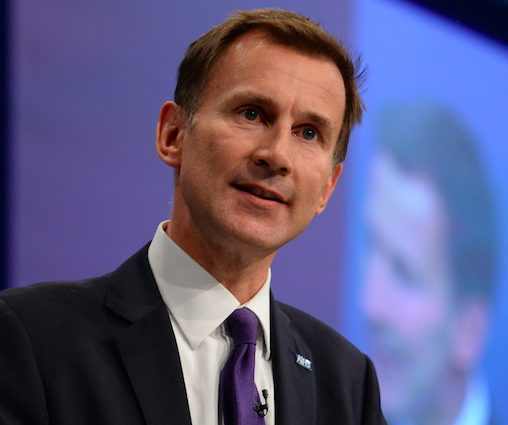NHS to introduce ID checks and charges on overseas patients in crackdown on health tourism

Overseas patients are set to be given ID checks and forced to pay for treatment on the NHS, under new plans to combat health tourism.
The move means anyone flying to the UK for non-urgent treatment such as a hip operation or cataract removal could now be turned away unless they agree to pay the NHS bill.
People needing urgent care will still be treated immediately on the NHS, but can still be invoiced – as is already the case – if they are found not to be eligible for free care.
They will also be told upfront that their care is chargeable before treatment begins.
The move comes after a report by the Public Accounts Committee found that the NHS is spending £2billion a year treating overseas patients.
Last year it recouped just £289million of that figure – just over half the £500million out had hoped to get back.

MORE: Pregnant mum raped by grenade-wielding illegal immigrant she met online
MORE: Pupil, 5, who choked to death during school lunch break is named
Announcing the measures, Health Secretary Jeremy Hunt said: “We have no problem with overseas visitors using our NHS as long as they make a fair contribution, just as the British taxpayer does.
“So we are announcing plans to change the law, which means those not eligible for free care will be asked to pay upfront for non-urgent treatment.”
The laws come into force in April and the Department of Health said it will be up to each NHS trust to decide how they check patients.
Two forms of ID, including a passport or birth certificate plus a utility bill, bank statement or council tax form, may be used as proof of eligibility for free treatment.
The announcement comes after a swathe of headlines about “health tourists” using the NHS, including Nigerian mother, Priscilla, who gave birth to quadruplets in the UK and now owes the NHS nearly £500,000.
Under the new plans, she would still have received urgent treatment as her life and those of her babies were at risk.
The Government hopes that forcing hospitals to have discussions with patients upfront will change a culture where people are invoiced after their care has already begun.
Patients will be able to choose not to have the treatment if they have no means of paying the bill.
Dr Kathy Mclean, executive medical director at NHS Improvement, welcomed the plans, saying: “This new approach will enable NHS hospitals to devote more time and resource to treating patients rather than chasing money they are owed. It will mean that more money is available to the NHS to care for patients and to continue to provide world class facilities.
“However, this won’t change the fact that, in an emergency, everyone will still have access to the urgent care they need.”
The British Medical Association warned the plans lacked detail and could lead to “chaos and confusion”.
Dr Mark Porter, BMA council chairman, said: “It is right that we ensure all patients are eligible for NHS care and that we have in place a working system to recoup the cost of treatment from patients not ordinarily resident in the UK.
“However, it’s hard to see how these new proposals will operate in practice, especially as they are to be implemented by law.
“There is no detail as to how upfront charging will be introduced from scratch in just three months, in an NHS already unable to cope with normal operations.
“We need to be careful not to demonise overseas patients or sow chaos and confusion within the NHS.”
Top pic: PA

 Yahoo News
Yahoo News 


